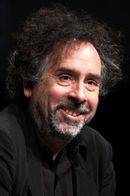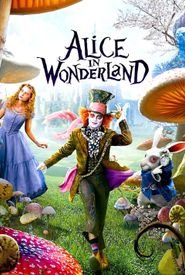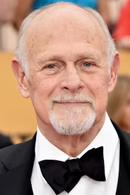Timothy Walter Burton was born in Burbank, California, to Jean Rae (Erickson),owner of a cat-themed gift shop, and William Reed Burton, who worked for the Burbank Park and Recreation Department. He spent most of his childhood as a recluse, drawing cartoons, and watching old movies, particularly those featuring Vincent Price.
As a ninth grader, his artistic talent was recognized by a local garbage company, which awarded him a prize for an anti-litter poster he designed. The company displayed this poster on all their garbage trucks for a year.
After graduating from high school, Burton attended California Institute of the Arts, where he honed his skills as an animator. His first job was as an animator for Disney, where he worked on films such as The Fox and the Hound (1981) and The Black Cauldron (1985).
Burton's early film career was marked by a series of successful short films, including Vincent (1982),an animated short about a boy who wanted to be like Vincent Price, and Frankenweenie (1984),a live-action film about a boy who brings his beloved dog back to life after it gets hit by a car.
The success of these short films led to Burton being approached to direct Pee-wee's Big Adventure (1985),a film starring Paul Reubens, aka Pee-wee Herman. The film was a surprise hit, and Burton's name became synonymous with quirky, offbeat filmmaking.
Burton's subsequent films, including Beetlejuice (1988),Batman (1989),and Edward Scissorhands (1990),solidified his reputation as a master of the macabre and the bizarre. He also collaborated with actor Johnny Depp on several films, including Edward Scissorhands (1990),Ed Wood (1994),and Sleepy Hollow (1999).
Burton's more recent films include Planet of the Apes (2001),Big Fish (2003),Charlie and the Chocolate Factory (2005),and Sweeney Todd: The Demon Barber of Fleet Street (2007). Throughout his career, Burton has been known for his unique visual style, his ability to blend horror and comedy, and his willingness to take risks and push the boundaries of what is considered acceptable in mainstream filmmaking.









































































